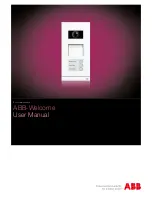
200 Series Owners Manual v.1
7-6-06
Page 2 of 9
Introduction
Thank you for choosing an Audio-Technica professional wireless system. You
have joined thousands of other satisfied customers who have chosen our
products because of their quality, performance and reliability. This wireless
microphone system is the successful result of years of design and manufacturing
experience.
Each 200 Series professional VHF wireless system includes a receiver and either
a body-pack transmitter or a handheld microphone/transmitter on a specific
crystal-controlled frequency. ATW-251 UniPak™ body-pack transmitter systems
include models pre-packaged with either an AT-GCW guitar cable (/G), a PRO
8HEcW headworn microphone (/H), or a lavalier mic (/L) for particular
applications. All A-T Wireless Essentials™ microphones and cables, available
separately, are pre-terminated for use with any ATW-251 system.
Because 200 Series packaging is designed to hold all versions of the system,
some compartments in the carton are intentionally left empty.
The ATW-R250 receiver includes a space-saving switching power supply that
automatically adapts to changes in mains voltage. Unlike bulky linear power
supplies, this switching power supply is lightweight and compact; it uses only a
single outlet space.
The versatile ATW-T201 UniPak body-pack transmitter has both a high-
impedance input for instruments, and a low-impedance input with bias
connection for use with dynamic and electret condenser microphones. The ATW-
T202 handheld transmitter features a unidirectional dynamic microphone
element.
Both the body-pack and handheld transmitters use internal 9-volt batteries and
have Off/Standby/On switches, input Trim (level) adjustments and battery-save
switches.
Receiver Installation
Location
For best operation the receiver should be at least 3' (1 m) above the ground and
at least 3' (1 m) away from a wall or metal surface to minimize reflections. Keep
the receiver antennas away from noise sources such as digital equipment,
motors, automobiles and neon lights, as well as away from large metal objects. In
multi-channel systems, position receivers at least 3' (1 m) apart and keep
operating transmitters at least 6' (2 m) from the receivers to help assure
maximum RF performance.
Output Connection
The receiver provides unbalanced, aux-level output from a 1/4" TS (“mono”)
phone jack; an output cable is not included. Use a shielded audio cable with 1/4"



























